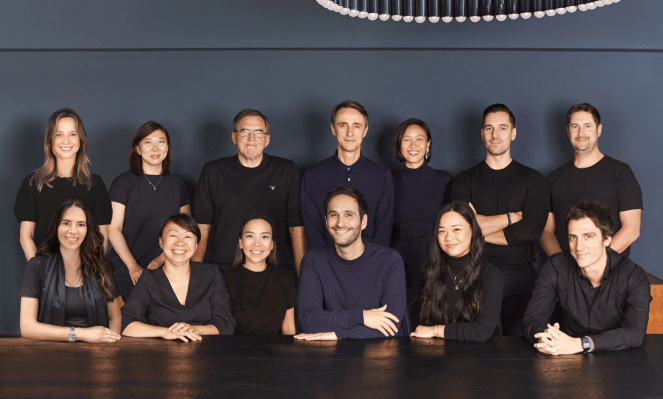Products You May Like
Last month, at the same time that the London-based venture firm Felix Capital was announcing that it has closed its fourth and newest fund with $600 million in capital commitments, we had a separate chat with Felix’s founder, Frederic Court, about how competition in Europe has changed, given that so many U.S. venture firms have opened offices on the continent, including Sequoia Capital, Lightspeed Venture Partners, Bessemer Venture Partners and General Catalyst.
Unsurprisingly, Court said the expanded array of options is great for founders. He also told us that most European investors would prefer to stick with European firms or to start their own shops where they can have more influence. We thought it was an interesting part of a longer discussion; the excerpts below have been edited for length.
TC: A lot of the biggest U.S. firms have set up shop in Europe over the last 18 months or so. How does all this interest impact your work locally?
FC: Many of these firms we know well already. They hire people who are already investors in Europe from other other [venture] platforms. And overall, it’s great for the entrepreneurs in Europe [and] a reflection of the evolution of the market.
Over here, we’ve seen more ambition, more talent, and obviously more capital in the past few years as Europe has begun to build not only local champions but global champions like Spotify and Adyen and Farfetch, where I was fortunate to be involved from day one as an investor. So yes, there’s more more competition, but there are more options as well for founders.
You mention these firms hiring from other platforms, though I’d read somewhere they’ve had some trouble hiring because there aren’t enough investors with general partner-level experience in Europe and also because the mindset is different from U.S. VCs who — until very recently — were focused on growth, whereas European VCs were more focused on removing risk. Does any of that ring true to you?
I think a lot of this is true. The reality is that we’re in an industry where, to measure success, it takes time. I mean, I’ve been in venture capital for over 20 years. They are not many of us. There’s Fred [Destin] who started Stride.VC and [investors at] Accel and Index who’ve been in this space for 20-years plus and with a great track record, but it’s quite a small community. So there is lots of great emerging talent but with fewer data points of success and, as a result, yes, it’s probably been harder for people to hire.
I think there is probably also a sense from many of the investors in Europe [that] they don’t necessarily just wait to be hired by American firms. They very much want to build local firms. When we launched Felix [in 2015] we found tremendous support from friends in the U.S. connecting us to [limited partners] because when i started, I had zero LP connections. But we also found a lot of local support from people wanting to nurture local co-investors with whom they could work well. So it’s not necessarily obvious for a European investor to suddenly join a team that’s new and where decisions will be made, for the most part, in the U.S. [compared with the opportunity they have to] be part of European platforms and have more influence.
It does happen, though. Lightspeed hired Paul Murphy from Northzone. Sequoia poached Luciana Lixandru from Accel in London. Have you lost anyone to the talent wars?
I’ve got no doubt that many people on our team are getting calls. We talk quite openly about it. Candidly, the hardest thing about running a venture firm is team building. [But] we have a certain way of doing things; we are very much a culture of “we” versus “I. We have a few great people who came and joined our firm, then moved on with great success, but the people who stayed and the people who joined more recently are very much attracted by this team culture. We pick our battles together, we win them together and we lose them together. And that’s very much a culture that I wanted from the very beginning. Even our fundraising is done in a very open way, with the list of all our investors available to the [entire] team. We don’t feel that we need to be secretive there.
You say there’s full transparency into your LP base across the firm. Are you trying to make the point that other firms might be more cautious about this, given that so many people have been spinning out to create their own firms?
LP relations is typically something that’s totally guarded from the rest of the team [but] we’ve been very open with our investors in connecting them to different team members in order to get to know them and also to validate what I’ve just described to you — that we work in a transparent way and are making decisions together.
Also, personally, it’s a part of the business that I was exposed to quite late, and I wish I’d [been exposed] earlier. It’s a very important part [of being a VC] that doesn’t get discussed as much. If you’re joining some of the large firms that you’ve mentioned, many of the partners or investors will not get involved in fundraising immediately because those firms are like machines in terms of fundraising [based on] very strong past performance. When you’re starting from scratch, often the first six months to a year to two years will be focused on fundraising, so it’s a key skill set, and we want our LPs to know the team and vice versa. It’s a choice to do it this way.
